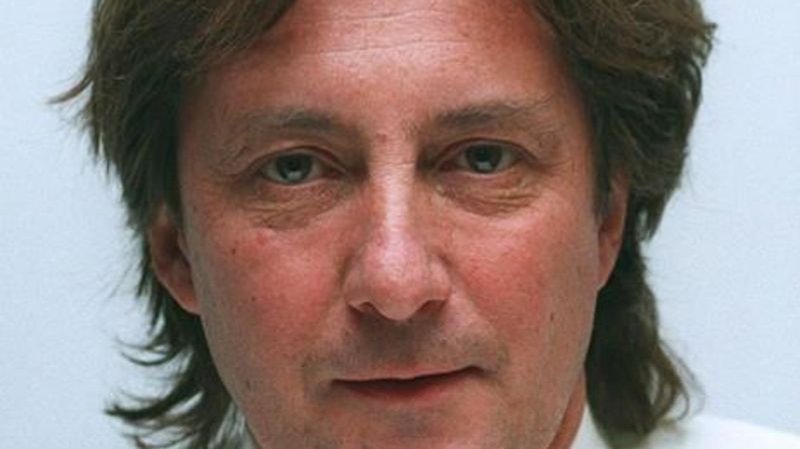That year, Stevens was honored with the Elmer Ferguson Award, presented annually by the Hockey Hall of Fame “in recognition of an esteemed member of the hockey writing profession whose words have brought honor to journalism and sports.”
“Neil is a rare combination of a beautiful writer and an inquisitive reporter,” Scott White, then editor-in-chief of The Canadian Press, said at the time. “But at the end of the day, what sets Neil apart from many sports writers is his passion for the story behind the game. He always looks beyond the score.”
“As a wire service journalist, Neil Stevens’ name doesn’t always appear in the newspapers, but he has probably been the most widely read hockey writer in Canada over the last 30 years,” added Kevin Allen, then president of Professional Hockey. Writers’ Association. “He’s an old-school reporter who can create a game story in 30 minutes and make readers feel like they’re there.
“His longevity as a Canadian Press hockey writer says a lot about how well he masters his craft.”
While Stevens covered hockey for CP for years, he tackled many sports, with skating, rowing and lacrosse also considerable areas of expertise.
Stevens actually wrote a book about Kurt Browning, co-writing the figure skating star’s 1991 autobiography: “Kurt: Forcing the Edge.”
He was honored by the National Lacrosse League Hall of Fame in 2008.
“Its influence and coverage on the sport has earned lacrosse a presence in newspapers across Canada and introduced the sport to thousands of new fans,” NLL Hall said in acknowledging Stevens.
Lacrosse has always been a favourite.
Stevens was born in St. Catharines, Ontario, on June 14, 1947. His father put him into lacrosse at the age of five near Port Dalhousie. He went on to play all the way to the pro level for St. Catharines Golden Hawks in 1969.
“I would never have gotten involved with the sport if I hadn’t grown a block from the lacrosse bowl and with the Henley regatta course in our backyard,” Stevens, who was also a driver growing up, told Standard.
After retiring, Stevens continued to write about lacrosse. There have been other writing projects such as the 2014 novel “Eddie’s Top 100,” about a retired sports writer who won a $50 million lottery and, to take his mind off money, compiled a list of his top 100 songs.
After high school, Stevens went to Ryerson for business administration, which he said was the only course he could take. Six weeks later, he quit school and went backpacking to Europe.
Upon his return, he enrolled at Niagara College where he met Catherine, his future wife. After applying to a newspaper looking for a reporting job, he found a new calling after Peterborough Examiner sports editor Wayne Parks recognized his name from covering a game of lacrosse and called him in for an interview.
“It was a great place to start writing hockey,” Stevens said in his acceptance speech for the Elmer Ferguson Award.
Roger Neilson coached a Petes team that featured Craig Ramsey, Colin Campbell and John Garrett. Stevens began covering a B team game, where he had to write about a young Bob Gainey.
The Buffalo Sabers held their first training camp in Peterborough and Stevens remembers walking back to the paper after Saber practice when the Lincoln Continental pulled over and the driver shouted, “Hey, kid, you want a ride?”
Buffalo Punch boss Imlach, who took Stevens to the Empire Hotel and treated him to a beer.
Stevens left the Examiner after two years, finally landing on the Sudbury Star. His work there resulted in a 1974 move to The Canadian Press, where he switched from news to sports in 1979.
Working for wire services took him across the country and around the world.
Stevens documents Mario Lemieux scoring the winning goal in the 1987 Canadian Cup in Hamilton, the Browning winning four world titles, the Florida Panther fan throwing a plastic mouse into the ice during the 1995-96 Stanley Cup final, Silken Laumann silver medal at the 1996 Atlanta Olympics, Gordie Howe played in decades sixth in a one-game stint with the Detroit Vipers IHL in 1997 and the Canadian men won Olympic hockey gold at the 2002 Olympics.
In 2000, he was on target when Kaleb Toth beat Rochester Knighthawks goalkeeper Pat O’Toole with one second remaining in regulation time to give Toronto Rock a 14-13 win, and a second consecutive National Lacrosse League title. It was the last sporting event to be held at Maple Leaf Gardens.
The usually icy Stevens retreated from his computer in the press box and threw his hands in the air in a combination of admiration and disbelief at the last-second championship decider. Then he quickly returned to the keyboard, playing a new top to his story.
Over the years, he listened to Bob Dylan a lot and was involved in mischief at times. At the 2000 Olympics in Sydney, it reportedly involved plans to free caged kangaroos, although the full story was never revealed.
He knows how to make colorful entrances, though usually quiet ones, often walking in a dapper hat in a corner.
Soft-spoken Stevens enjoys family, friends, and many memories from his time with what he calls “the people’s cable service.”
“I made a few friends along the lines of the press and I will always cherish the memories of the conversations during the intellectual post-game get-together,” he said, referring to the gathering over a cocktail or three.
In Elmer Ferguson’s acceptance speech, he cited many of them. “Thank you for sticking with me,” he concluded.
“Having my name attached to the same award as some of my writing sports heroes – (the late) Frank Orr (1989) and the late Jim Coleman (1984) in particular – is a real sensation,” he said. “When I started at CP, they were respectable veterans who didn’t have to give me time. But they did. It means a lot to me. Still can.”
The legendary Coleman who dubbed Stevens “Looseleaf,” a nickname that stuck.
Stevens used to use loose-leaf folio paper for taking notes, with Coleman observing the only times he saw him were at events involving red maple leaf (Canada) and blue maple leaf (NHL Leafs).
Fellow CP Stevens never knew what was expected of him. One Saturday night, she arrived for the editing shift wearing a poncho and sombrero with chips and gravy. He could argue for an elegant NHL roundup in that drop or some other cap.
Doesn’t bother him too much.
A morning staff member came in and found Stevens asleep, his feet propped up on the exercise table. He had left his car keys at Cyrano’s, the local watering hole across the street, and didn’t notice the loss until his night shift was over and the bar closed.
So he chose to close his eyes until they were opened again the next day.
Stevens is old school in many ways. She will appear at the skating show with a wreath to place on the Canadian writer’s desk. He likes to get postcards from far away.
And he makes the Christmas gift exchange at CP’s sports department an annual adventure, with goldfish (live) and chicken feet among his offerings to fellow staff.
In retirement, Stevens divides his time between his home in Brampton and a cottage on Lake Huron.
—
Follow @NeilMDavidson on Twitter
This report by The Canadian Press was first published on April 1, 2022.
Neil Davidson, Canadian Press

“Coffee enthusiast. Hipster-friendly social media fanatic. Certified zombie expert. Problem solver.”







